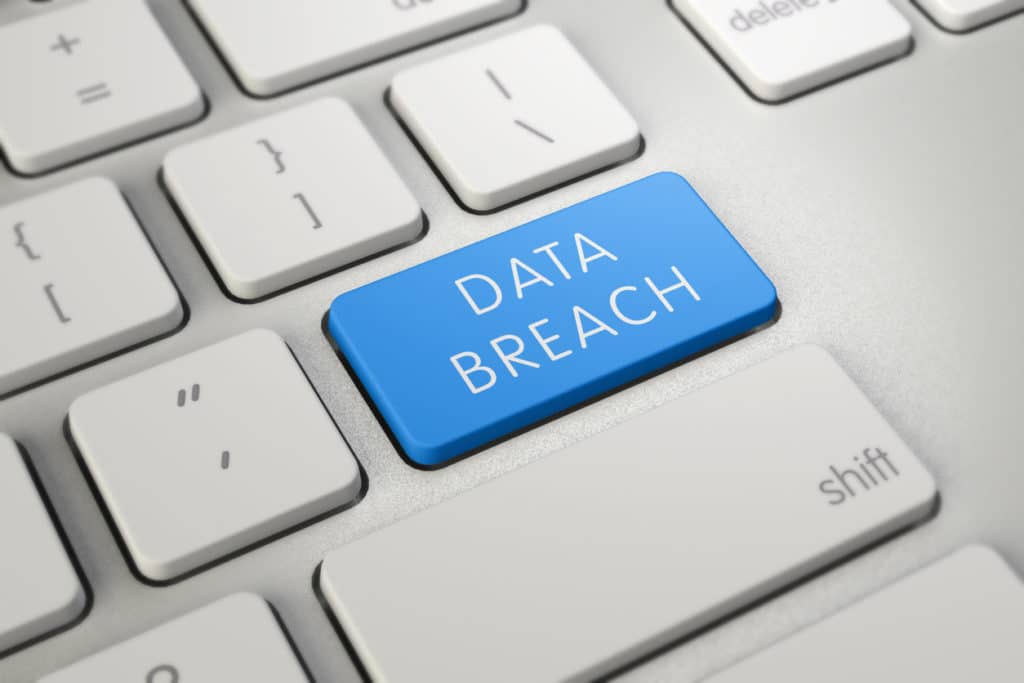Unfortunately, cyberattacks, privacy rights violations, and data breaches are all too common in the Internet Age. Over 53 million people had their data stolen in the first half of 2022 alone. Having personal information stolen such as your name, social security number, address, phone number, email, and medical information can have life-altering consequences and cause undue stress for data breach victims. If you have been the victim of a cyberattack, privacy rights violation, or data breach, call Emery | Reddy, PLLC today to speak with an experienced Intake Specialist for a Free Case Review and learn how we may be able to help. No fee unless we recover for you.
Cyberattacks, Privacy Rights Violations, and Data Breaches are Common
Businesses have an obligation to their customers to protect their personal data and inform them if something happens to it. Most companies will usually offer privacy rights violations and data breach victims free credit or identity monitoring for a year or two. In some cases, this is enough. But if a business loses customer data in a cyberattack and further investigation reveals it was because of poor cybersecurity systems, it could potentially be sued in a class action lawsuit.
HOW IT WORKS
Learn about Privacy Rights Violations and Data Breaches
How Does a Data Breach Happen?
The most common causes of a data breach are weak or stolen passwords, or when companies use software or cloud-based applications with bugs that hackers use to break into the system.
Sometimes employees download software that is malware in disguise. Less common, but still serious, disgruntled employees may steal and then sell coworkers’ personal information.
How to Protect Your Information after a Data Breach
If you received a data breach notification letter, it is crucial to understand what evidence you need for a successful data breach lawsuit. Below are some steps you can take to safeguard your identity.
- Check your credit report: You can get one for free from annualcreditreport.com. Notify Equifax, Experian, and TransUnion to ask them to place a fraud alert on your accounts.
- Consider placing a credit freeze: It’s free and makes it harder for someone to open accounts using your information. You can do this at the credit bureaus linked above.
- Subscribe to credit and identity monitoring services: These services will send you alerts for any suspicious activity.
- Regularly change your passwords and security questions: Never use the same password for your banking and credit accounts. You can also use password managers like Bit Warden or LastPass.
- Two-factor authentication (2FA): Set 2FA on your digital accounts whenever possible.
- Set up security alerts: You can set up security alerts with your bank and credit card companies. These alerts will text or email you whenever there is suspicious activity.
- File your taxes as early as you can: Thieves can use your Social Security number to get a tax refund or even a job.
- Ignore threatening phone calls: Phone scammers will threaten you and attempt to get you to send them money. Don’t believe them, even if they have part or all of your Social Security number or say they’re from the IRS.
How Do I Know If My Information Has Been Compromised?
Hackers will use stolen information in different ways. The following are some signs that your information from a data or privacy breach has been compromised:
- Unauthorized charges to your bank account or credit card
- Your tax return is rejected, or you are asked to prove your identity to the IRS to complete your tax return
- Statements or mail for accounts you didn’t open, or a stop in bills or statements from accounts you do own
- Collection notices or calls for a debt that you don’t owe
- Errors on your credit report
- Being denied credit, even though you have a history of good credit
- A warrant for your arrest

Do I Need a Privacy Rights Violation and Data Breach Attorney?
If you have tried to work things out with your employer and nothing has been done, then it’s time to consult with an experienced Seattle Privacy Rights Violation and Data Breach attorney. Employment and Labor Law is complicated and can be overwhelming for anyone not familiar with it. Trying to hold a company accountable for bad business practices requires a skilled attorney to navigate the different laws and tactics an employer may use.
Emery | Reddy has decades of experience in Employment Law and an unmatched record of helping Washington state workers get the justice they deserve in labor violations. Call for a Free Case Review to speak to an experienced Intake Specialist and learn more about your rights.
Are you Injured?
Contact Us Today
Contact Us for a FREE Case Review.
No Fee Unless We Recover for You.
Want More Information?
As a Washington state employee, you are entitled to several protections and benefits under state and federal laws.
A class action lawsuit begins when one or more individuals, known as class representatives, identify a common legal issue that has affected a large group of people. They can be complex and may take years to resolve due to the numerous legal steps involved.
Employment and Labor Law violations are all too common and can leave you feeling ashamed, confused, angry, anxious, and afraid. Find out the answers to your Employment Law questions today.
We fight for you
Meet the Team
The Seattle Employment and Labor Law Attorneys at Emery | Reddy, PLLC are passionate about helping workers with L&I claims and Employment and Labor Law issues. We help workers.® It’s our motto and what drives us every day.
We know how L&I and big companies think, and we understand the tactics they use. Our Seattle Employment and Labor Law Attorneys use that knowledge coupled with over eight decades of experience to help our clients get access to the benefits to which they are legally entitled and hold employers accountable when they break the law.
If you’re struggling with a Washington state L&I claim, or legal issue at work, call us for a Free Case Review with an experienced Intake Specialist to learn more about how Emery | Reddy may be able to help. No fee unless we recover for you.
“Relentless and persistent. Without Emery | Reddy, none of us would have seen what was owed to us.”
— James B.
Receive a
FREE Case Review







